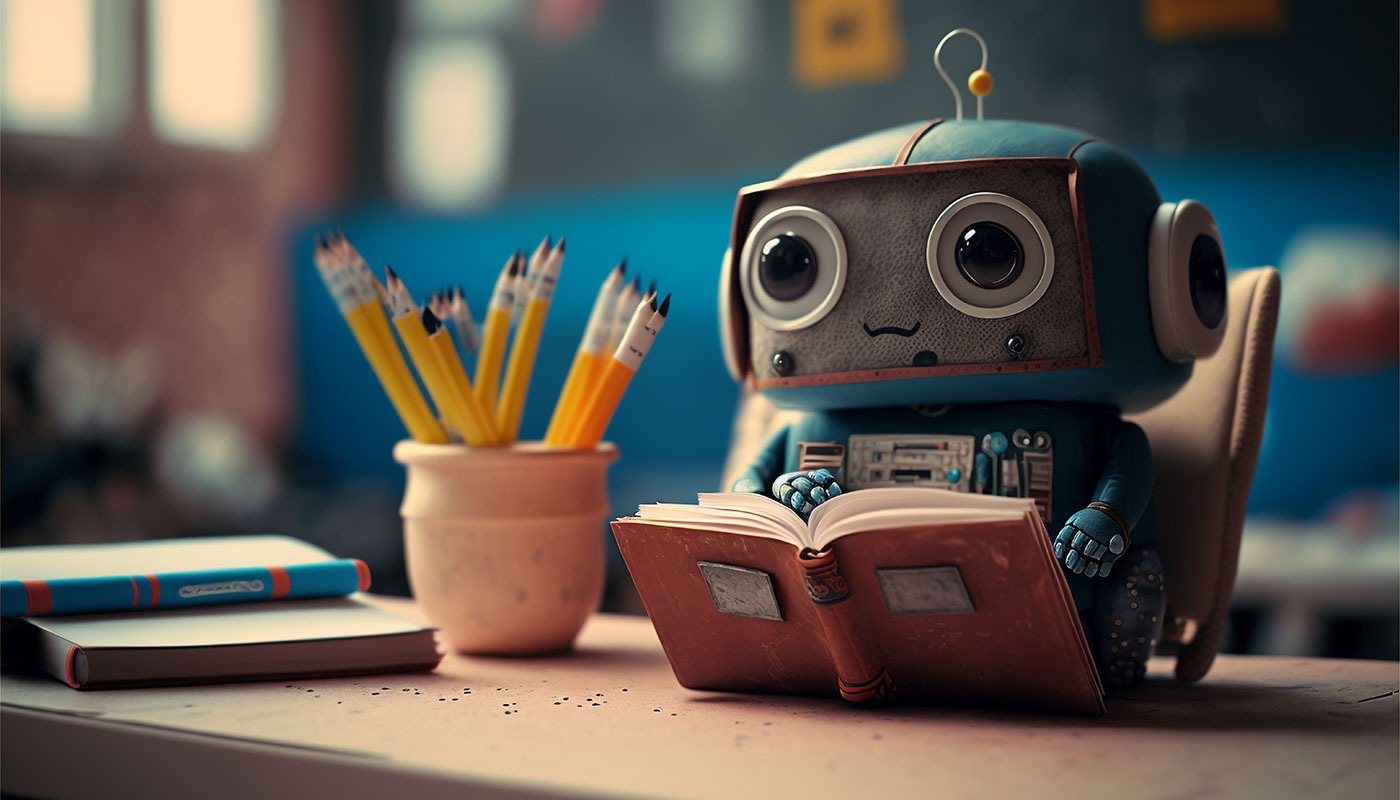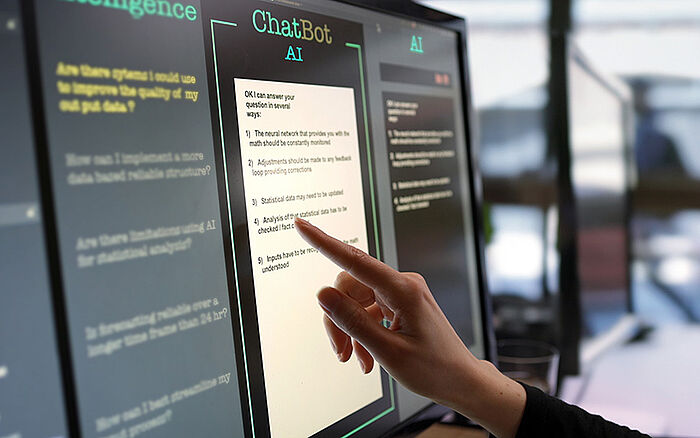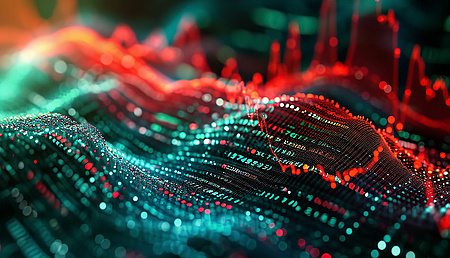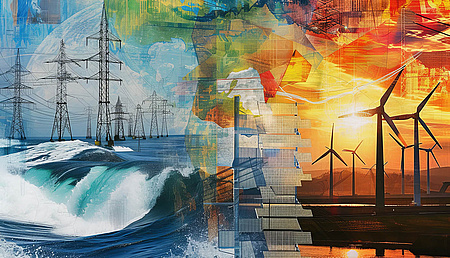
Can generative AI generate IP? The rise of ChatGPT
Not long ago, we might have envisioned a future world where artificial intelligence (AI) fulfilled a vast assortment of humdrum duties, but did we ever consider its ability to write code, essays — or patent abstracts?
For the time being, it is unwise either to underestimate the long-term potential of AI and its machine learning (ML) subcategory or to assign to it an omniscience that it does not possess. With that out of the way, the potential of the technology is considerable, and the best way to describe its current situation would be to note its "transitory state."
Few things exemplify this admixture of enthusiasm and suspicion better than the conversations and controversies surrounding the generative text model (or, more casually, "chatbot"), ChatGPT. This makes the chatbot an ideal starting point for a longer discussion of generative AI across multiple blog posts, with the purpose of examining the implications for the Intellectual Property (IP) system, its practitioners and beneficiaries.
Join our webinar to discover the cutting-edge world of legal technology and learn about the potential of artificial intelligence to revolutionize the IP industry.
A surprise success: origins of ChatGPT
According to its creators at OpenAI — the company also behind AI image generator DALL-E, which we have examined in this blog — no one is more surprised at ChatGPT's recent popularity than they are since it was based on a natural language processing (NLP) model that dates back to 2020. OpenAI's company leaders went in with the same mindset as the app's development team, expecting fanfare from the tech world due to its updated NLP system, which was more responsive and simulated conversational speech (and dialogue) more effectively, and little mainstream notice.
And they were right – to begin with. When ChatGPT debuted publicly in November 2022, it received minimal attention, but by December, it was all over the news and social media. In early 2023, research revealed ChatGPT was the fastest-growing consumer application in history, with about 13 million daily unique users and more than 100 million monthly active users in January.

The concept of the chatbot has existed since the 1960s, but the data samples required to generate commercially useful text did not become available until the advent of the internet. Today's AIs seem so lifelike partially because they have access to the full range of human expression.
ChatGPT's technological basis is not entirely unlike that of an above-average e-commerce chatbot. Like earlier models, the AI text generator uses NLP to interpret user requests that are input as typical speech (rather than as the fragmentary phrasing of search-engine queries). But its sophistication and responsiveness are far beyond any customer-service bot due to the sheer amount of data it has been trained on.
- Ask it to write a script that mashes up fictional and real-life characters in outrageous situations. It does just that in proper screenplay format.
- Ask it why blues pioneer John Lee Hooker is underrated, and it elaborates on his poor record sales and minimal promotion: an oversight which would only be outweighed by his influence on later blues, R&B and rock artists.
- What about the issues most affecting the modern IP industry? ChatGPT immediately cites the pace of technological evolution, regulatory changes and cross-jurisdictional differences, IP trolls and counterfeiting.
The practical and humorous appeal of ChatGPT is obvious yet still seems insufficient to explain its lightning-fast user growth or Microsoft's willingness to invest $10 billion USD in the company and Bain's marketing partnership. Indeed, the next Coca-Cola advertising campaign will likely involve ChatGPT-penned slogans and content, as the soft drink giant is among Bain's most prominent clients.
Limitations and controversies
OpenAI is quite transparent about ChatGPT's limitations. Upon login, users see disclaimer notices that its historical knowledge beyond 2021 is limited (due to the available training data), as well as the warning that it may "occasionally generate incorrect information" and "produce harmful instructions or biased content."

Generative AIs developers set up deliberate "roadblocks" to hinder the intentions of malicious users. Even so, it is notoriously difficult to predict and prevent someone determined to create extremely distasteful material.
Company leaders and programmers have been forthcoming on these issues in media outlets and claim to be constantly working to address them: A major update announced on April 25 includes the option to turn off chat history to protect users' privacy. This action will surely not be the last taken in response to public complaints and government restrictions. Recently, New York City's public schools banned the app due to cheating concerns, while Italy has temporarily forbidden access to it for failing to check the age of users and the "absence of any legal basis that justifies the massive collection and storage of personal data." Inspired by the Italian government's reservations, regulators in Germany, France, Ireland and Spain are all monitoring the situation and could take action against OpenAI for possible General Data Protection Regulation (GDPR) violations.
Perhaps surprisingly, the app's ability to write code has caused some of its most heated controversies. Though its programming capabilities prove wanting in industry assessments, it has been used to create malware (albeit based on prompts from a cybersecurity expert). Some in the industry feel it may, at least to some extent, replace human programmers. The fear of AI and automation as "job destroyers" is not new and has not — so far — borne out quite as its most ardent subscribers expected, but research from Goldman Sachs projects that generative AI is likely to have adverse consequences for 300 million office-based jobs worldwide.
ChatGPT and IP
Up to this point, most investigations of generative AI's actual and potential impact on the IP sector have centered on image generation tools, with the technology stirring up some bitter recriminations and no shortage of copyright lawsuits.

Image generators have injected fresh vigor into the age-old philosophical debates on what constitutes "art." Must art be difficult to produce, or is it enough that a work be beautiful? Is artistic value ultimately in the eye of the beholder?
All the same, this singular focus on visual media will likely end as more lawmakers and copyright holders take notice of ChatGPT's mechanisms and output. Yet because it is text-only, the chatbot's potential for infringement is something of a gray area, if by no means nonexistent. Though it can produce material that is (intentionally) derivative of writers whose work is copyrighted, whether its generated works rise to the standard of infringement remains to be legally tested. Along similar lines, it has not been determined whether accessing and utilizing copyrighted written material to train generative AIs in the first place is a commercial purpose that falls outside of fair use / fair dealing allowances. Presumably, "educational" exemptions would not apply since an AI is not a natural person.
Ultimately, by their very nature as generative, these AI technologies will have to contend with key issues of the IP world in some way, especially as they mature and expand their capabilities. For the next blog in this series, we will tackle the questions of authorship and IP ownership. Stay tuned!
Filed in

What are the three pillars of IP innovation, and how can C-suite members maximize the value of assets that are, by definition, less than concrete?



